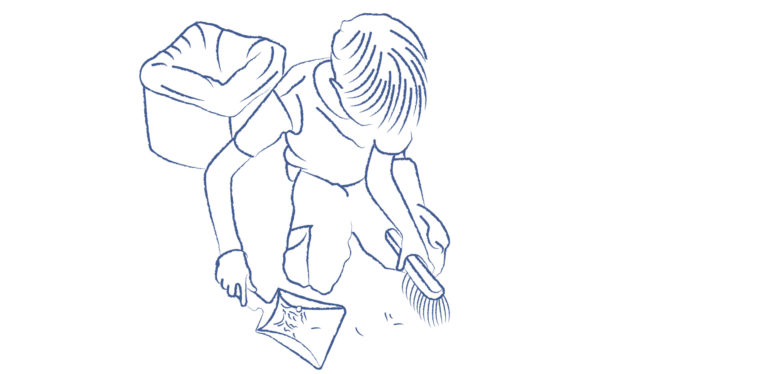When children first come to The Children’s House, they are introduced to the practical activities we all carry out in our everyday lives and which have to do with caring for ourselves, for others and for our environment. They encounter the same activities they so love doing at home! For example, they will be able to bake bread, to squeeze their own juice, to polish some silver, to wash a few articles of clothing, to water and prune plants, to set the table for lunch, to dress, to sew a button and to dust! What enthuses children is that they are able to use real tools (the right size for their hands) thereby making it much easier for them to succeed in what they are doing. The activities have been organised specifically for children of this age so that they may work independently and for as long as they like. Each activity is presented by the teacher to each child individually. After this presentation, the child may chose to work on the activity and keep practicing until he has perfected it!

Children of this age have a great desire for independence. «Help me do it by myself!» we hear them say. When they have the freedom to choose an activity which has a clear purpose, to work with real tools and to complete their work at their own pace, children have taken one more step towards independence. “I can do it!” we hear them shout… something that fills them with confidence and builds their self-esteem.
In order for children to achieve the aim of each activity, they need “to educate their movement” as Dr Montessori tells us, in other words, coordinate it. For this to happen, children concentrate so that their hands (their body) will follow the directions that their mind will give. However, we have noticed that children not only try to coordinate their movements, but they also work hard to be exact and to master them. Therefore, we need to appreciate the tremendous effort they exert in order to coordinate mind and body so as to achieve the desired result.
These activities, which seem to us so familiar and straightforward, help children acquire the basic tools of coordinated movement, a degree of concentration, a strong will and self-confidence all of which they will need in order to move on to more complex work such as writing, reading and arithmetic.
